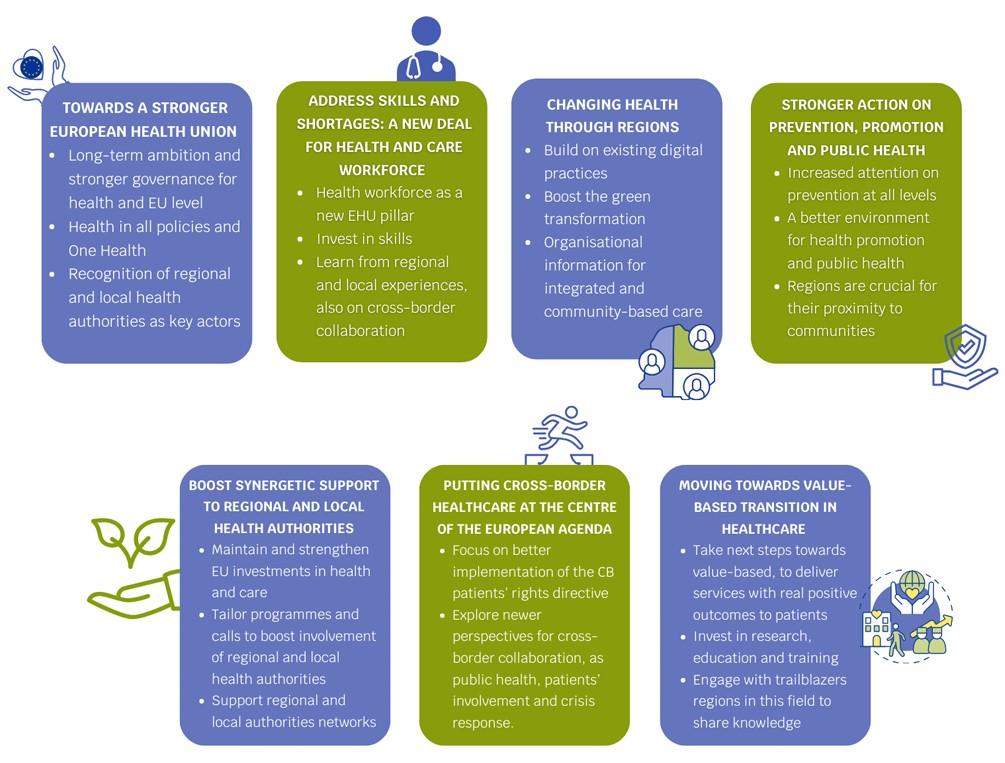In an era marked by major global trends and challenges already underway for our healthcare systems, such as the digital and green transformation, demographic and climate change, and healthcare workforce shortages – to mention a few –, as well as fast-paced development of breakthrough technologies and innovative approaches, the building of a European Health Union represents a crucial step to implementing strengthened, more resilient, and future-proof health and care systems and, consequently, create better health for current and future generations. In this respect, the upcoming EU elections are a unique opportunity to keep health high on the political agenda and reinforce coordinated and synergistic endeavour towards this ambitious project.
In about two-thirds of EU Member States, local and regional authorities bear the responsibility or an important degree of competence for the planning, organizing, and delivering healthcare services to citizens. Their proximity to communities places regions in a unique and fundamental position to detect populations’ health needs and local challenges while, at the same time, supporting research and innovation and implementing actions that can positively address other determinants of health, such as social, economic, and environmental factors. Given their role as frontline implementers of health policies, regional and local ecosystems have often been configured as living laboratories in which to put into practice innovative approaches and interventions in healthcare and have proven to be fertile ground for European cooperation and integration, especially in multi-regional settings like border areas. Also, acting as a bridge between people, institutions and all other relevant actors, local and regional authorities are key in fostering participatory co-creation models and mechanisms for health policies and implementation, from the local to European level.
For all these reasons, recognising the importance of the regional and local dimension is key to advancing the shared Health Union project, ensuring that policies and programmes are shaped and resourced reflecting actual health systems and population needs.
The EUREGHA Manifesto offers a set of recommendations to improve health and care systems in Europe towards more efficient and impactful care and prevention, with a focus on the regional and local dimension, to engage, connect, and grant regional and local health authorities the right resources and opportunities to play a central role in the positive transformation, digital, green and organizational, of health and care delivery and policy.
Our Manifesto’s pillars:

Check out our Manifesto below (or here)!



